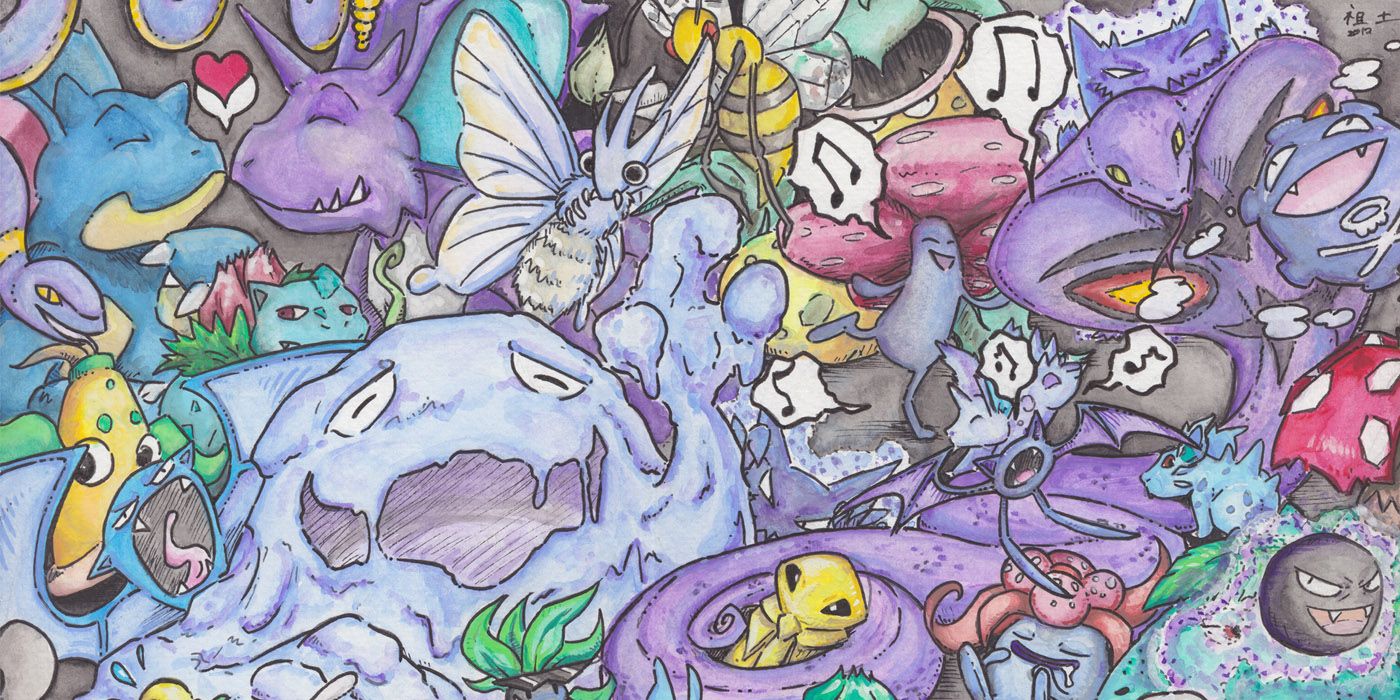
In Pokémon games the poison attack type has not traditionally been the most popular among players. For starters, poison lacks a serious offensive presence, being super-effective against Grass-types and (eventually) Fairy-types. Steel-types negate Poison moves entirely, unless the user has Corrosion. Generation 1 didn’t have a poison attack that caused significant damage, and bugs in the code made it weaker than it should have been. Generation 2 only added one poison move, Sludge Bomb, which at least had a high attack rating of 90 and could poison the opponent. Unfortunately, many of its best users didn't have the right stats to actually let it shine.
RELATED: 10 Best Non-Damaging Moves In Pokemon
It wasn’t until Gen 4 that poison moves began to compete with the other damage types in terms of damage potential. Now that the poison type has more damaging moves in its collection it has become one of the better attacking types, despite lagging behind other types in terms of offensive presence.
Updated February 2nd, 2021 by Tanner Kinney: Poison-types have a place in the metagame primarily as a defensive type. It resists five different attacking types, including prominent ones like Fairy and Fighting. Many of the best poison-types also pack a secondary-typing to help shore up some of their more glaring weaknesses. With this, some of the best Poison attacks are actually ones that don't deal damage at all. Poison-types aren't going to try and make an opponent explode; they'd rather see their opponent slowly suffer.
15 Corrosive Gas
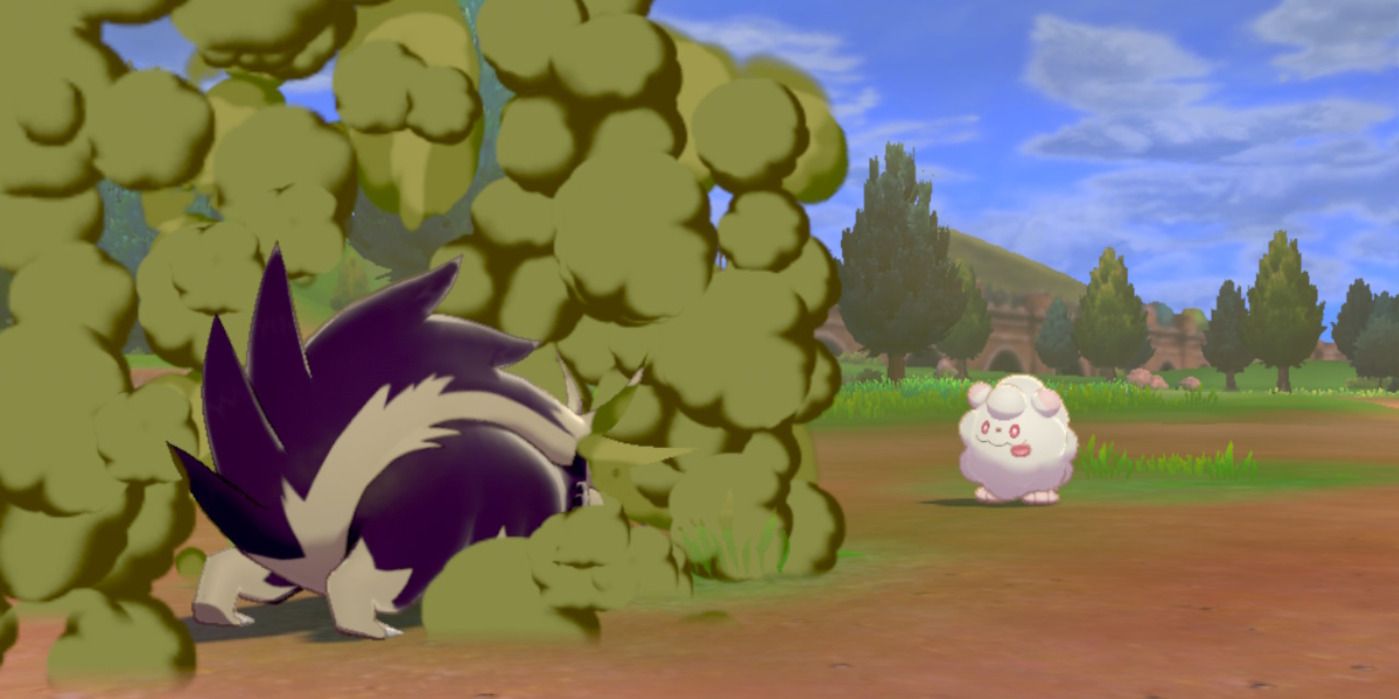
Corrosive Gas is a new attack introduced in The Isle of Armor DLC, part of the Gen VIII experience. This attack can be taught to a variety of poison-types through the move tutor on the island. This attack is a status move with 40 PP and a perfect accuracy, like many other status moves. However, the status ailment it inflicts isn't traditional, but is quite crippling in the right hands.
Corrosive Gas will render the target's held item unusable. The corroded item cannot be swapped, removed, or restored; it's as if the Pokemon is holding a junk item. This effect lasts throughout the rest of battle and cannot be cured through moves like Aromatherapy or Heal Bell. Considering how many Pokemon are reliant on abusing powerful held items, Corrosive Gas can help to cripple both offensive and defensive Pokemon that rely on an item to succeed.
14 Coil
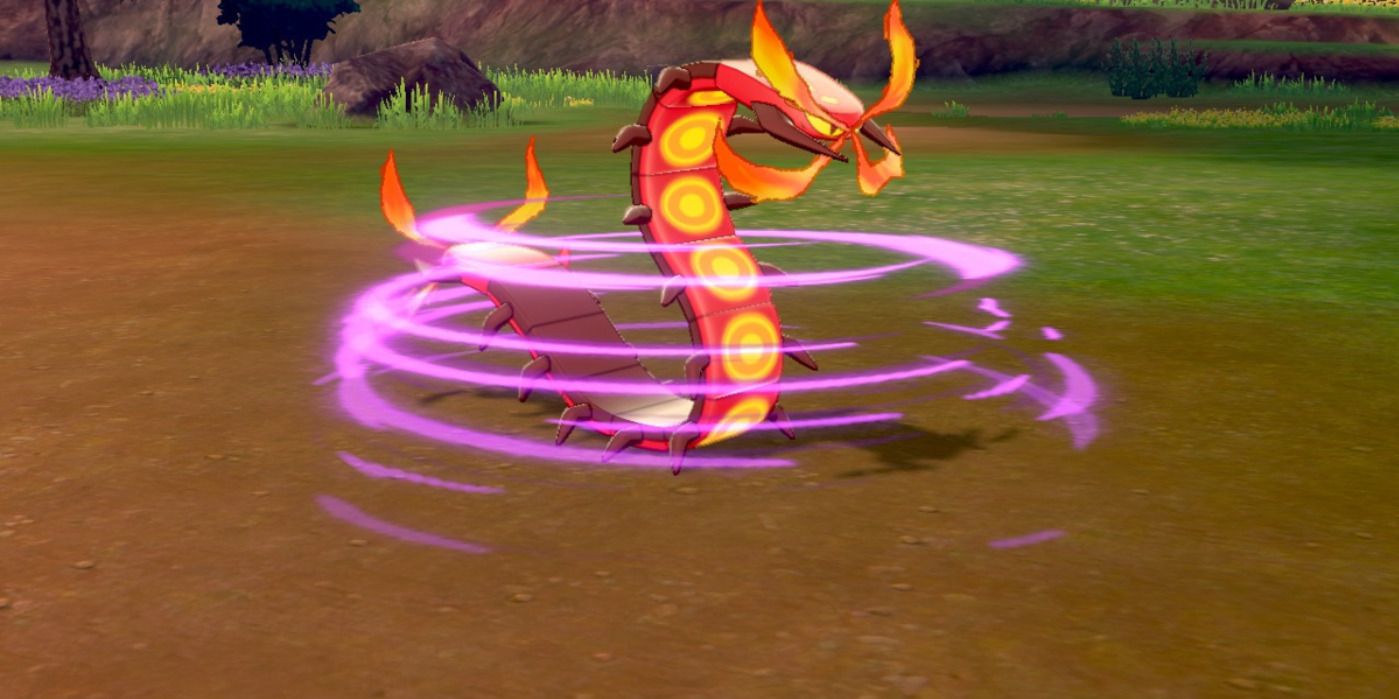
Coil is an appropriately named technique, particularly due to being available for serpent-like Pokemon (and Furret, for some reason). The user coils themselves up and goes into deep meditation, focusing their power. This status move increases attack, defense, and accuracy by one stage. In many ways, it's limitations to specific Pokemon helps to keep it balanced, as these sorts of stat buffs are hard to come by. Hone Claws may have more widespread use, but the defense increase is hard to pass up.
Unfortunately, despite how powerful the move sounds, its users don't exactly spark joy. Many either have better options for stat buffs, can't make use of the attack boost, or are simply too bad to actually make it worth learning. However, if your Pokemon can learn Coil, it's still a solid options, and the most effective self-buff with the Poison-typing.
13 Toxic
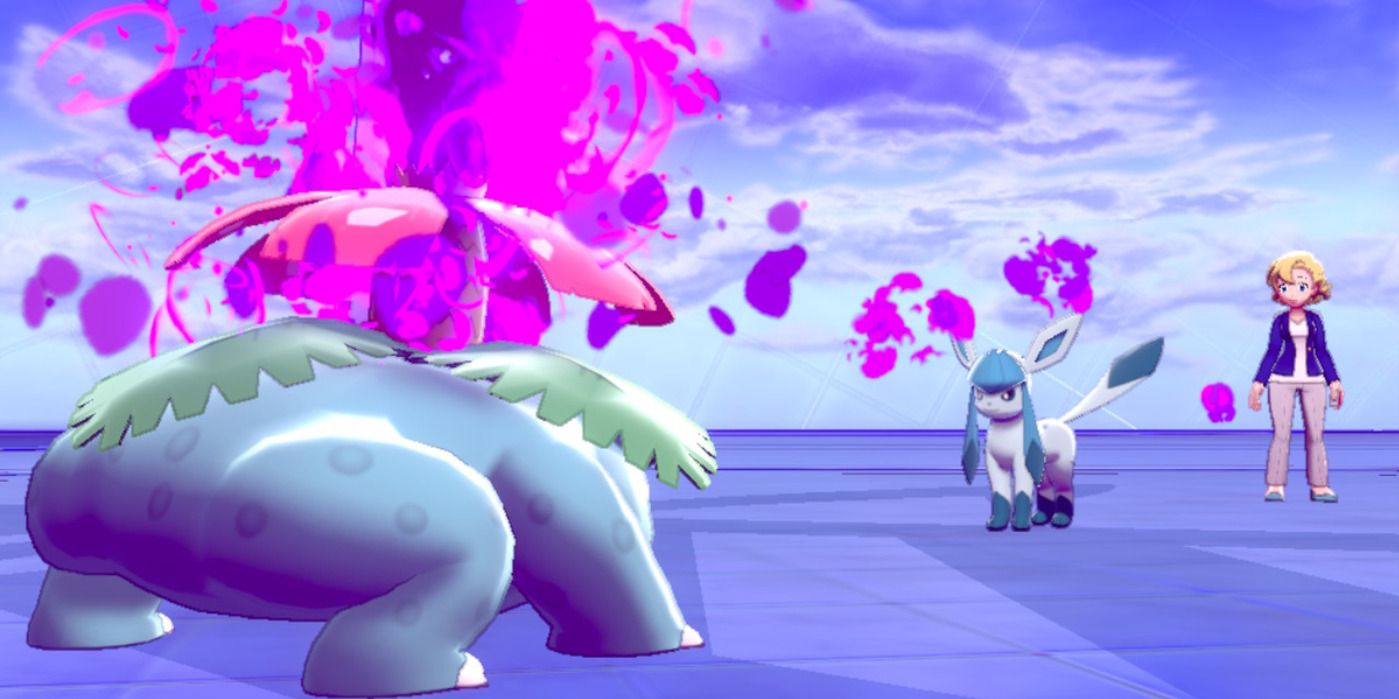
Toxic is arguably the definitive poison attack. It has been in the game since Gen 1, and from the start it was a powerful technique. It has 10 PP, imperfect accuracy, and doesn't deal damage. As a status move, it's fairly one-dimensional. However, it inflicts one of the greatest status ailments to cripple both damage dealers and tanks alike: the badly poisoned status.
RELATED: 10 Most Underrated Abilities In Pokemon History
A badly poisoned Pokemon will take damage at the end of each round, like traditional poison. However, badly poisoned Pokemon will take progressively more damage as they stay engaged in battle. This prevents stalling Pokemon from stalling, and puts a ticking timer onto buffed-up attackers. The timer resets upon switching out. There are other attacks that have a chance of inflicting this type of poison, but Toxic is the most reliable. Best of all, the move can be learned by just about every single Pokemon.
12 Baneful Bunker
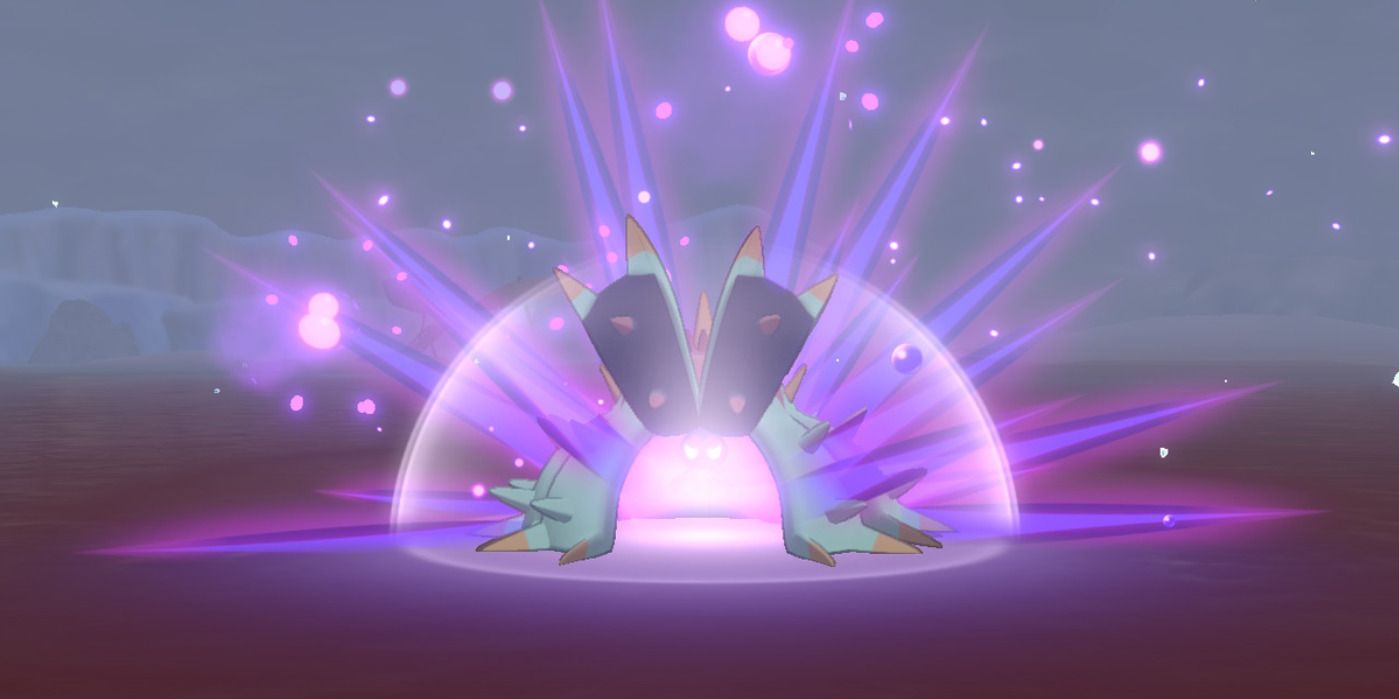
Toxapex is one of the strongest water-types ever added to the series, and likewise it's one of the strongest poison-types. Its unassuming appearance may fool inexperienced trainers, but those who have been battling competitively post-Sun and Moon will know the terror. It's a bulky Pokemon with great stalling techniques. This includes its signature move: Baneful Bunker.
Baneful Bunker is a specialty Protect-like move, with 10 PP and similar mechanics. It fails if used successively, and can be broken through by Dynamax moves. However, Baneful Bunker is powerful due to its special features. If a contact move hits the Baneful Bunker, the attacking Pokemon will be poisoned. This free poison puts it a step above other similar moves, and helps Toxapex reign as one of the premiere walls of top-tier play.
11 Toxic Spikes
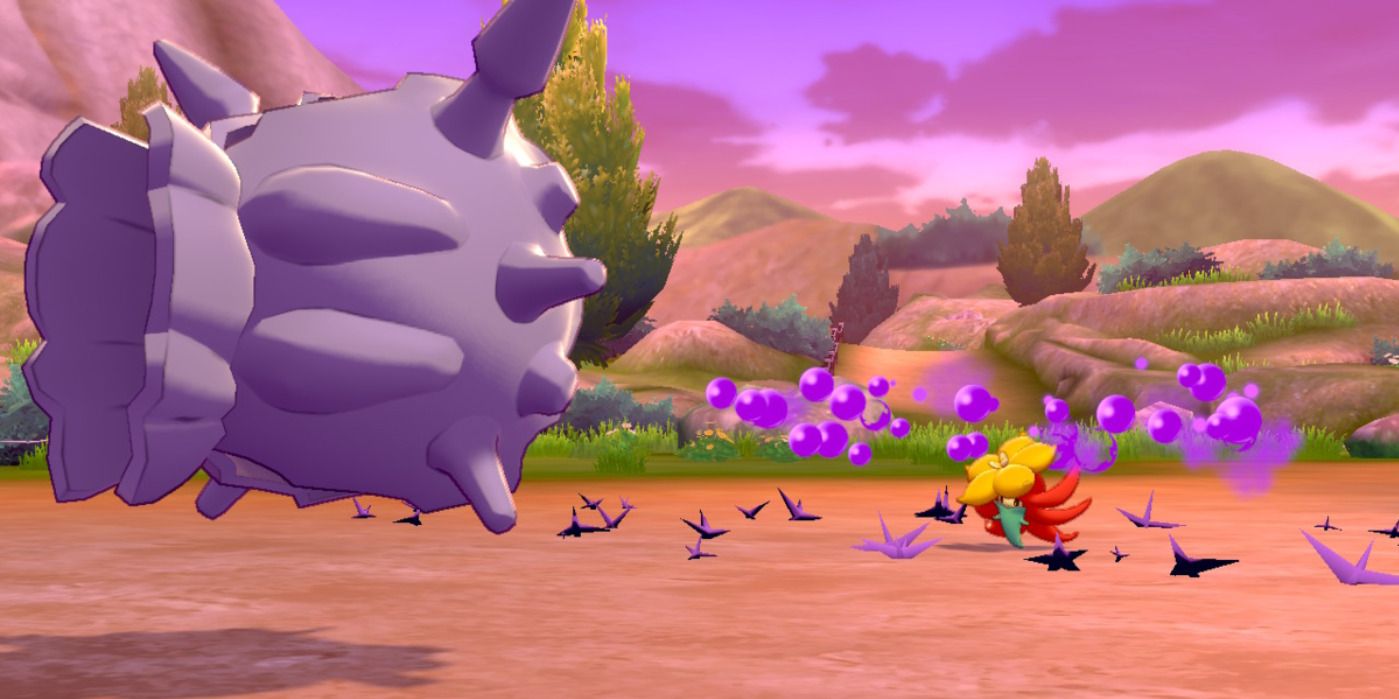
Toxic Spikes are arguably the best status move within the poison-type as a whole. It isn't locked as a signature move, meaning a large variety of Pokemon can use it. Plus, it works perfectly on Pokemon that are already the move effective poison-types to begin with.
Toxic Spikes are a hazard move added in Gen IV. They scatter across the field, and the opponent's Pokemon will become poisoned when they switch in a new Pokemon. This excludes steel-types and other poison-types, who will absorb and remove the spikes. It can also be layered twice, applying Toxic poison onto the opposing Pokemon instead of regular poison. Although it has a fair number of counters, Toxic Spikes are wildly dangerous when left unchecked. It single-handedly cripples teams, and is part of the reason hazard control is so valuable in the current metagame.
10 Belch
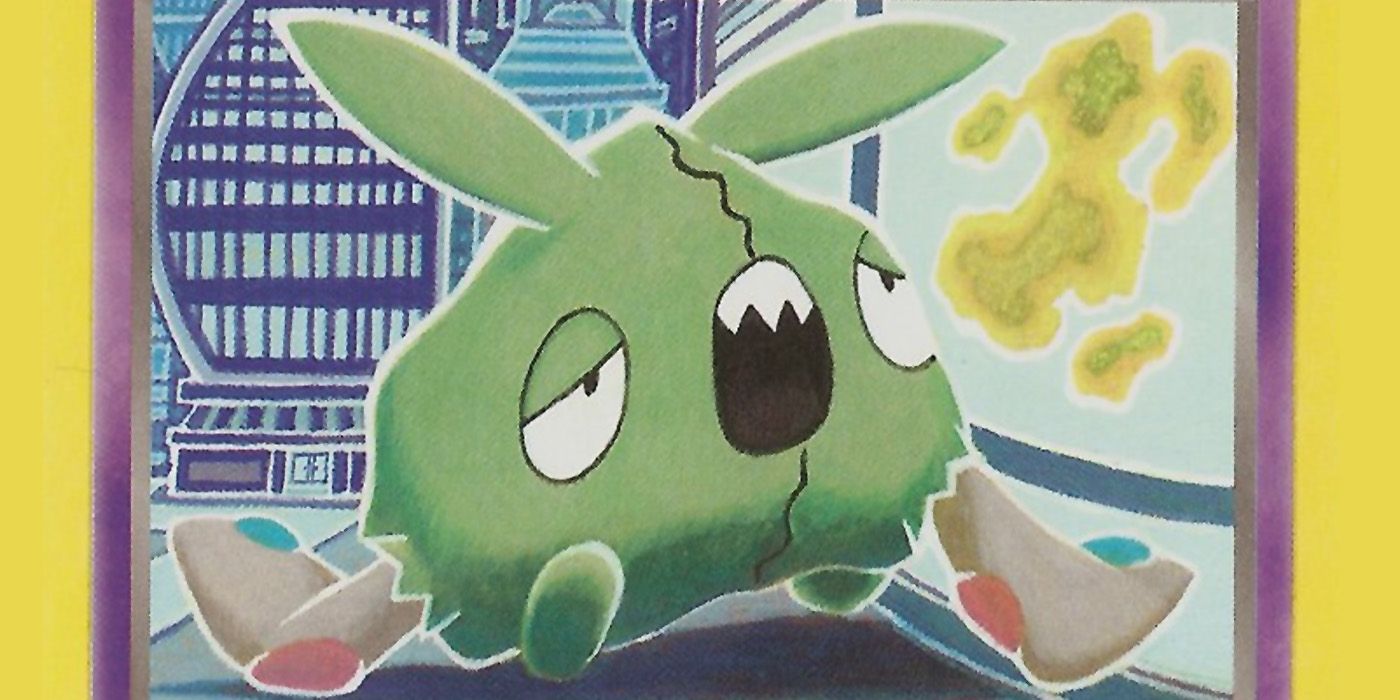
Belch would be near the top of this list if not for its prerequisite. For Belch to be available, the Pokémon using it must have already eaten a berry in that battle. Manually feeding the berry to the Pokémon doesn’t satisfy the prerequisite either. However, after the berry is consumed one time, the move will continue to be available throughout the rest of the battle.
RELATED: Every Pure Poison Type Pokemon, Ranked
This move does have a whopping 120 power and a 90 accuracy, which makes it tied with another move for most damaging poison attack. Probably because of the move’s prerequisite, Belch has 10 PPs – which is twice the amount of most moves with a 110+ power rating. Despite this amazing power rating there are much better poison moves. For builds that can play around the berry-eating prerequisite, it is a useful and often surprising technique.
9 Poison Tail
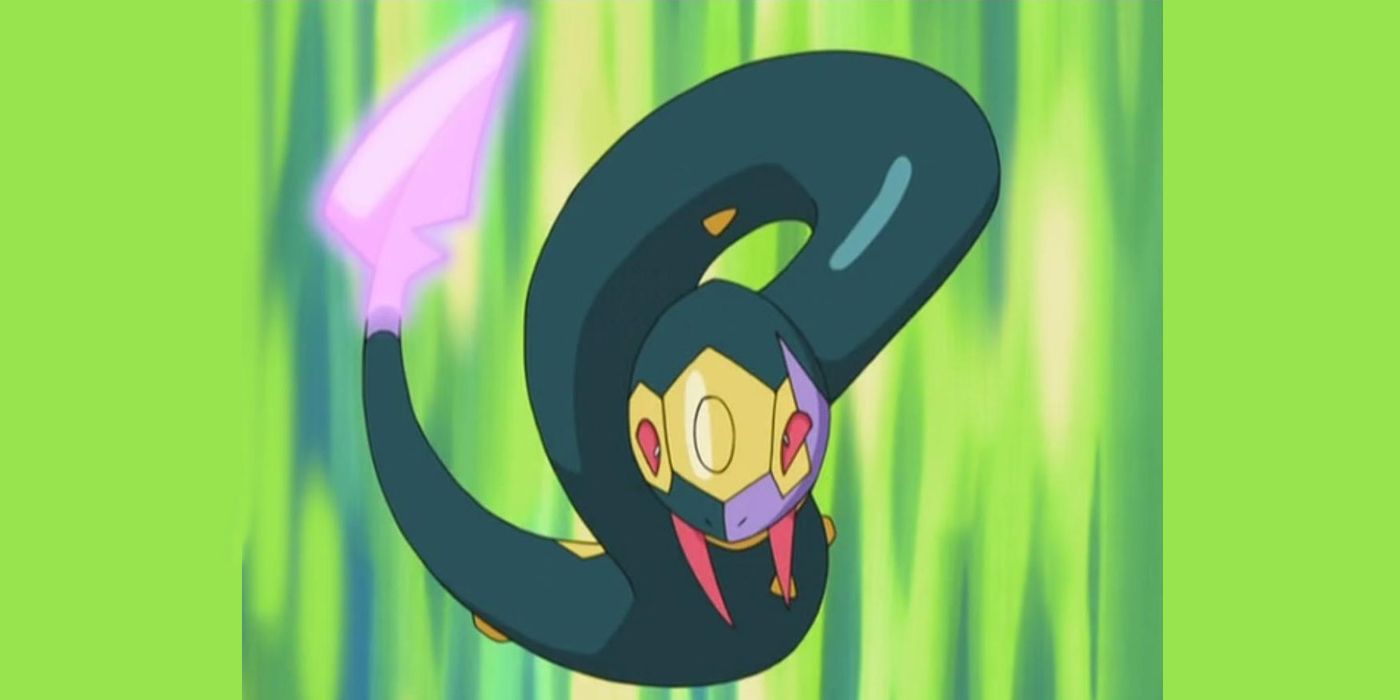
This is a generation three move, and still one of the better poison attacks. This is not exactly a good sign in terms of the effectiveness of Poison moves (at least in terms of raw power). Poison Tail has a power of 50, an accuracy of 100, and a high amount of PPs with 25. Poison Tail has a 10% chance of poisoning the opposing Pokémon.
Additionally, this move has an increased chance to perform a critical hit; from 1/16 chance to 1/8. The poison, 100% accuracy, and increased critical hit chance, along with the high PP count, make Poison Tail a great standard attack. A higher power would be preferable, but this is something reliable and typically available early on for players.
8 Poison Fang
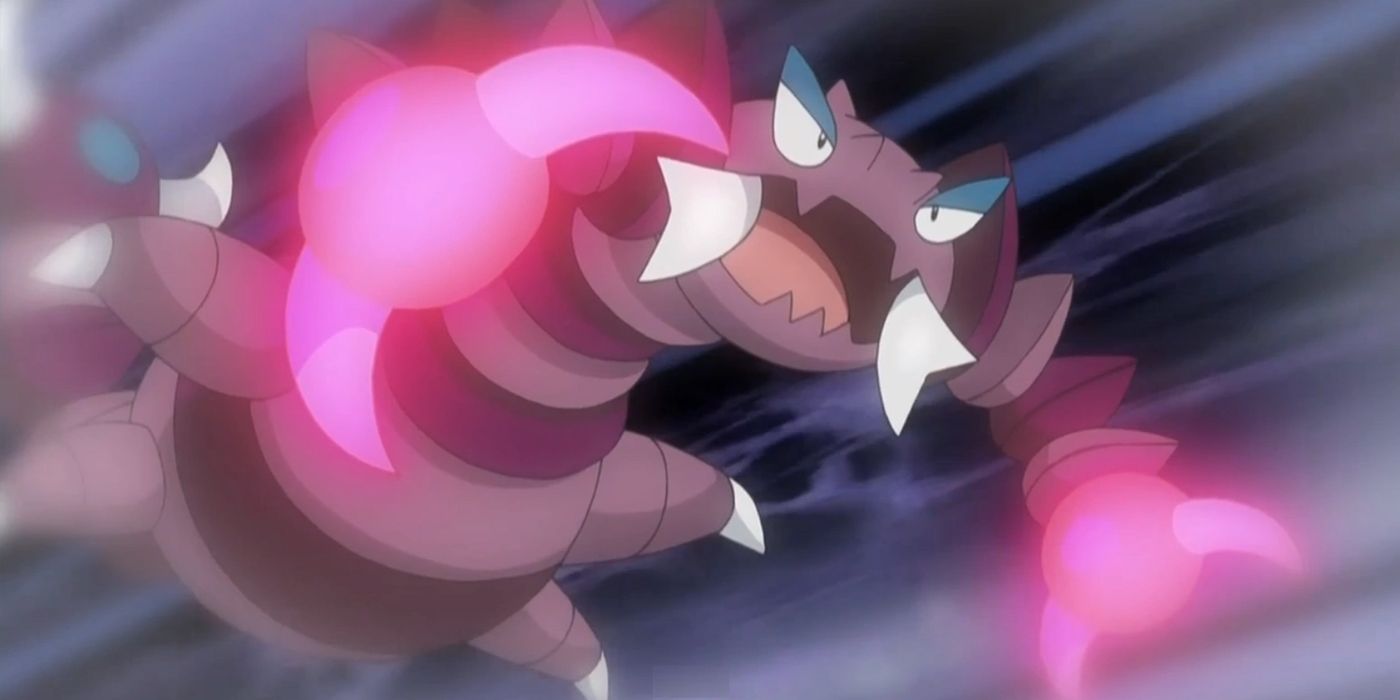
Poison Fang and Poison Tail are very similar moves. They both have a power rating of 50, and have 100 accuracy ratings. They both also have a chance to poison the opposing Pokémon; however, Poison Fang has a 50% chance of badly poisoning the opponent.
Being badly poisoned causes the poison damage to increase by 1/16 every turn. After a few turns this extra poison damage begins to quickly add up. After four turns the poison damage alone will have dealt 10/16 of the opponent’s health. Poison fang has a PP count of 15 – which is enough to use liberally between visits to the Pokémon Center in town.
7 Cross Poison
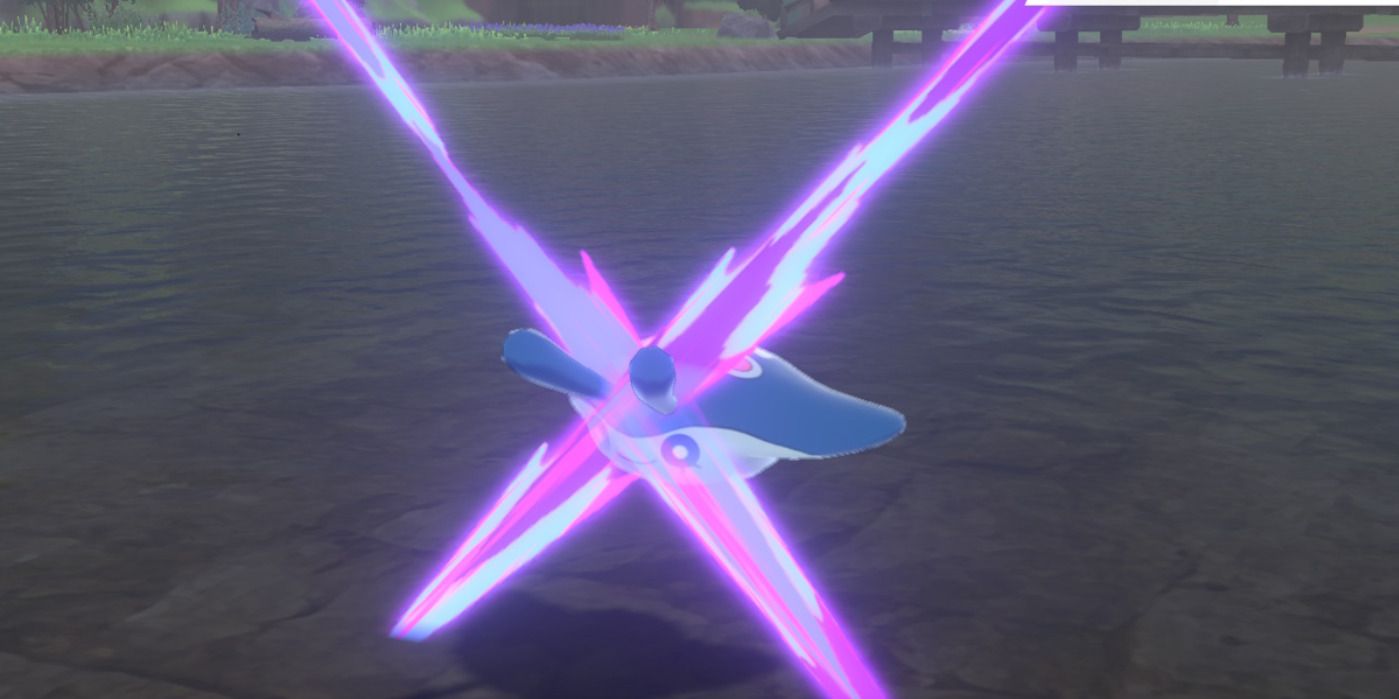
Cross Poison is basically a slightly better Poison Tail. This move has a power rating of 70, and an accuracy rating of 100. Cross Poison also has a 10% chance of poisoning; which belies using it if the goal is to poison the opponent.
RELATED: The 10 Best Pokemon To Use As Tanks
The move also has Poison Tail's increased critical hit rate, from 1/16 to 1/8 chance. Essentially one out of ten attacks (on average) will cause double damage after other calculations, like having a weakness to a certain attack type. Cross Poison has a decent PP count of 20, but this can be increased to 32.
6 Sludge Wave
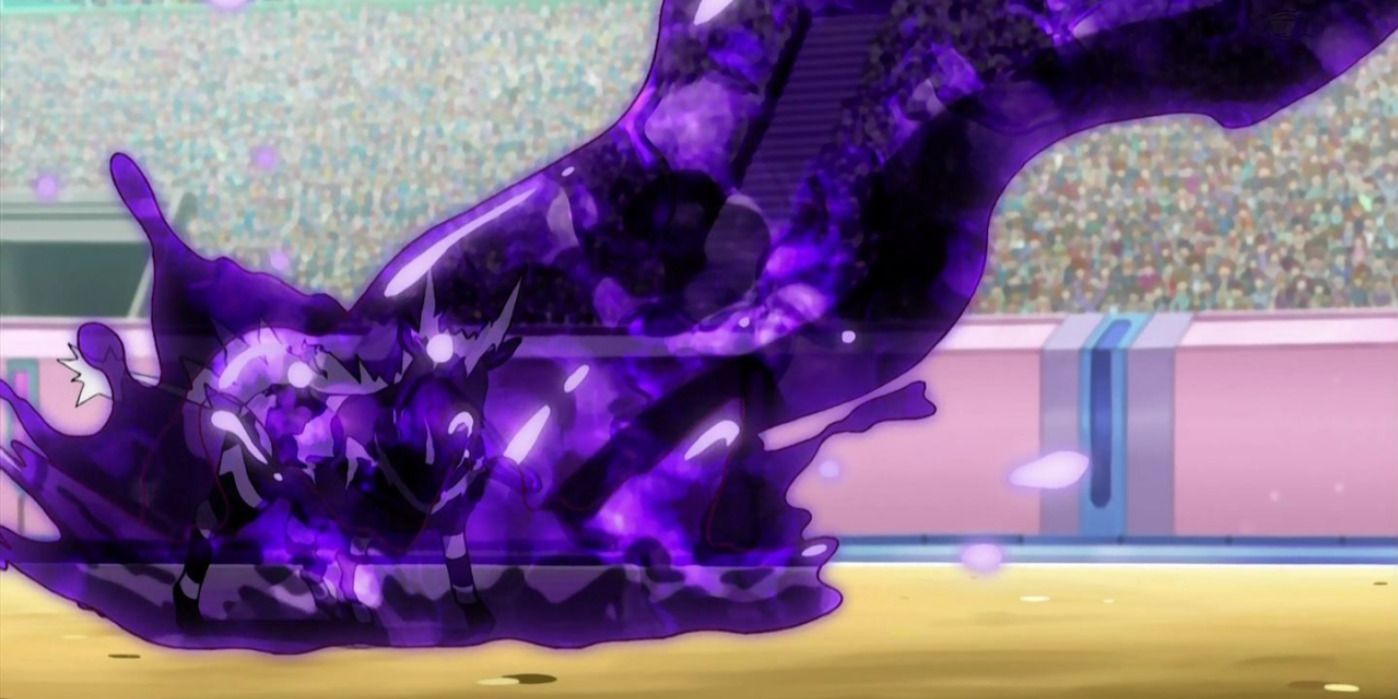
Sludge Wave is one of a handful of high damage poison moves; the scarcity of high damage poison moves is why it, and most of the remaining moves, made this list. This attack has a power rating of 95, an accuracy of 100, 10 PPs, and a 10% chance of poisoning the opposing Pokémon. The attack will also hit every Pokemon in a double battle, similar to moves like Discharge or Earthquake.
The attack power compared to its PP count is average, but the PP count can be increased to 16 if desired. However, items that increase PP count should be saved for better moves than Sludge Wave. This is also a move that's often a TM or a TR, and is best given to a Pokémon in need of a mid-level attack.
5 Purify
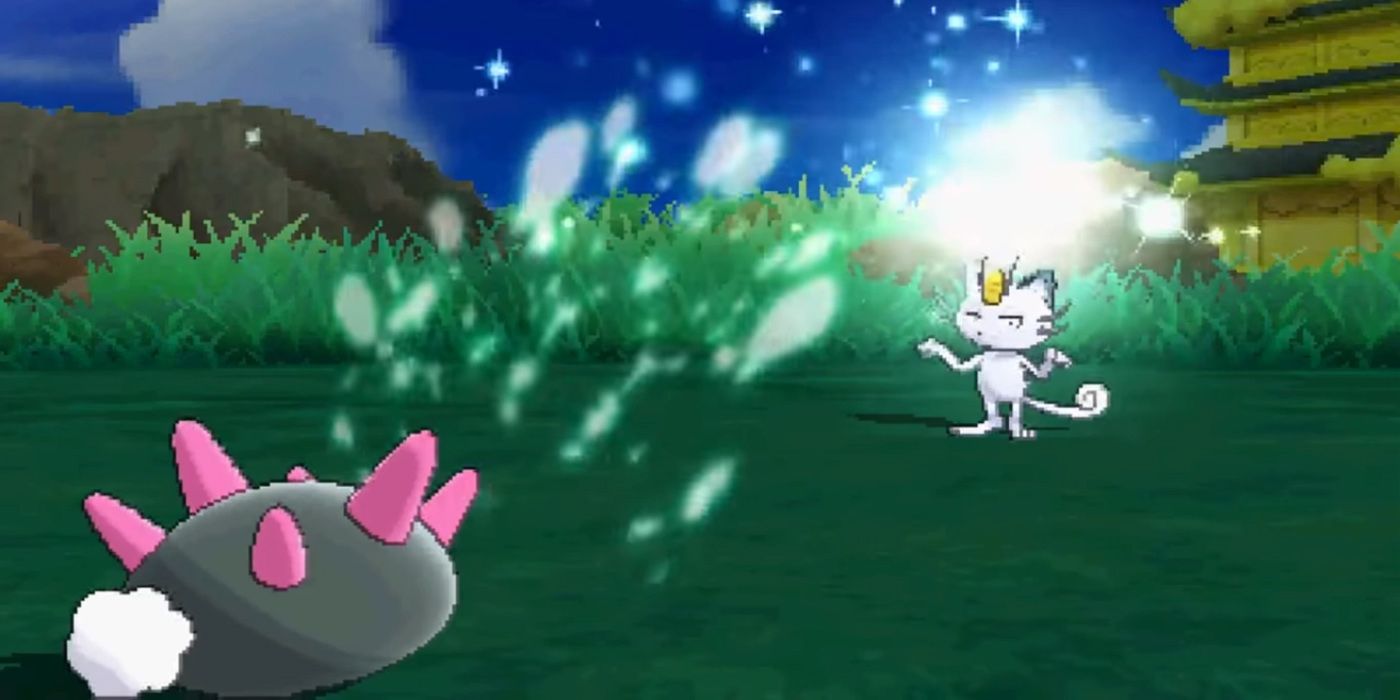
This is one of the few poison moves that is beneficial for the Pokémon using it, as well as being beneficial for the target. This extremely useful poison move removes status conditions from the target, like frozen or paralyze. As a concept, this sort of utility move is incredibly valuable and rare to find amongst competition.
Purify will also heal the Pokémon that used it, if it is successful in removing the status effect. This makes it one of the best moves for removing status ailments, although maybe not on the same tier as Heal Bell or Aromatherapy. This is unfortunately not a TM, and this move is locked as the signature move of Pyukumuku. Maybe in future generations, it'll expand beyond its limitation to be genuinely useful.
4 Venoshock
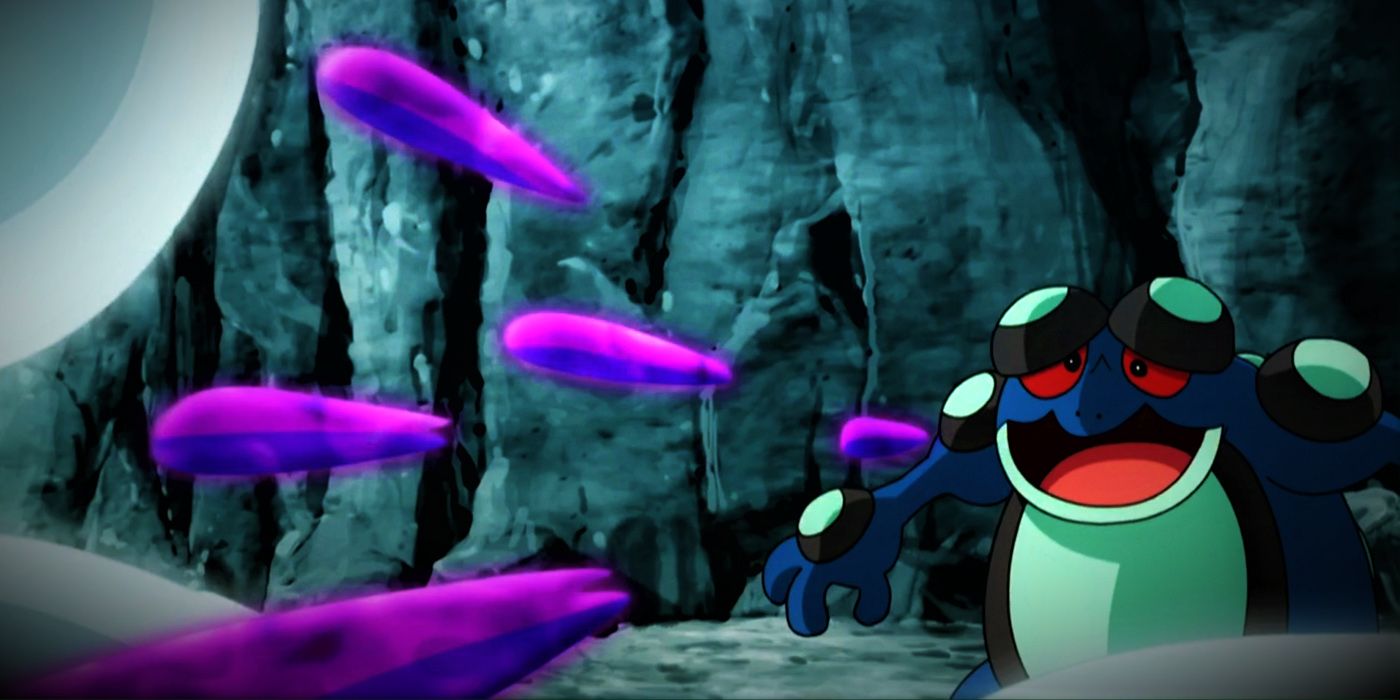
Venoshock is a devastating move for poison type Pokémon to learn. The move’s power rating is 65, its accuracy is 100, and it has a PP count of 10. The reason Venoshock is so high up this list is its ability to deal double damage when used against poisoned opponents – giving it an incredible 130 power rating.
RELATED: Pokémon: The 15 Best Flying Moves, Ranked
The PP count can be increased to 16, and it is highly recommended to do so. If an opposing Pokémon is poisoned there isn’t a better poison attack than Venoshock. This is also a TM, and works well with Poison Jab, Toxic, or Toxic Spikes. Toxic Spikes in particular can enable Venoshock to really shine, as without a counter it can allow a Pokemon to cleanly sweep a team.
3 Poison Jab
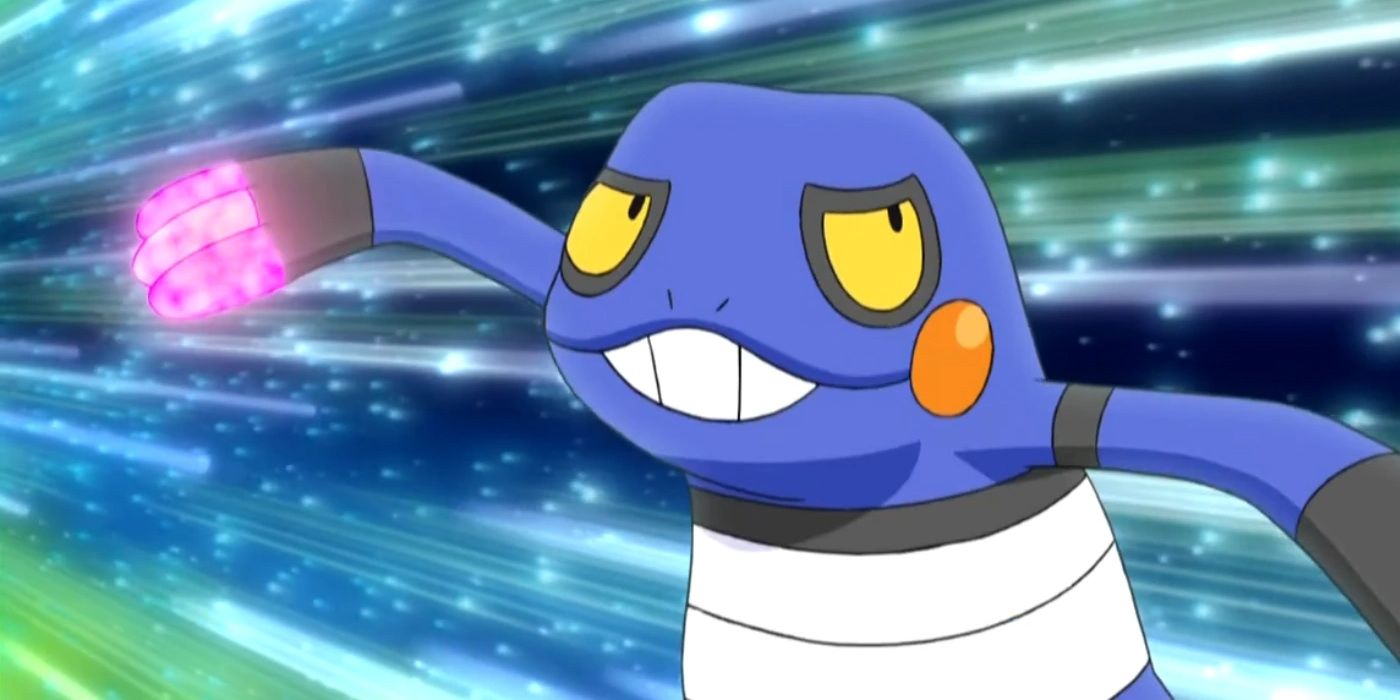
Poison Jab is the third TM to make an appearance in this list; however many Pokémon get this ability via leveling-up. This is a great TM for Pokémon when trainers wish to give a secondary attack type to one a Pokémon.
It has a respectable power rating of 80, an accuracy rating of 100, 10 PPs, and a 30% chance to poison. Although it has “jab” in the title, Poison Jab is not considered a punch, and therefore is not usable with abilities like Iron Fist. As a side note, Poison Jab is the best poison fast attack in Pokémon GO; dealing 10 damage with a recharge time of 0.8 of a second.
2 Sludge Bomb
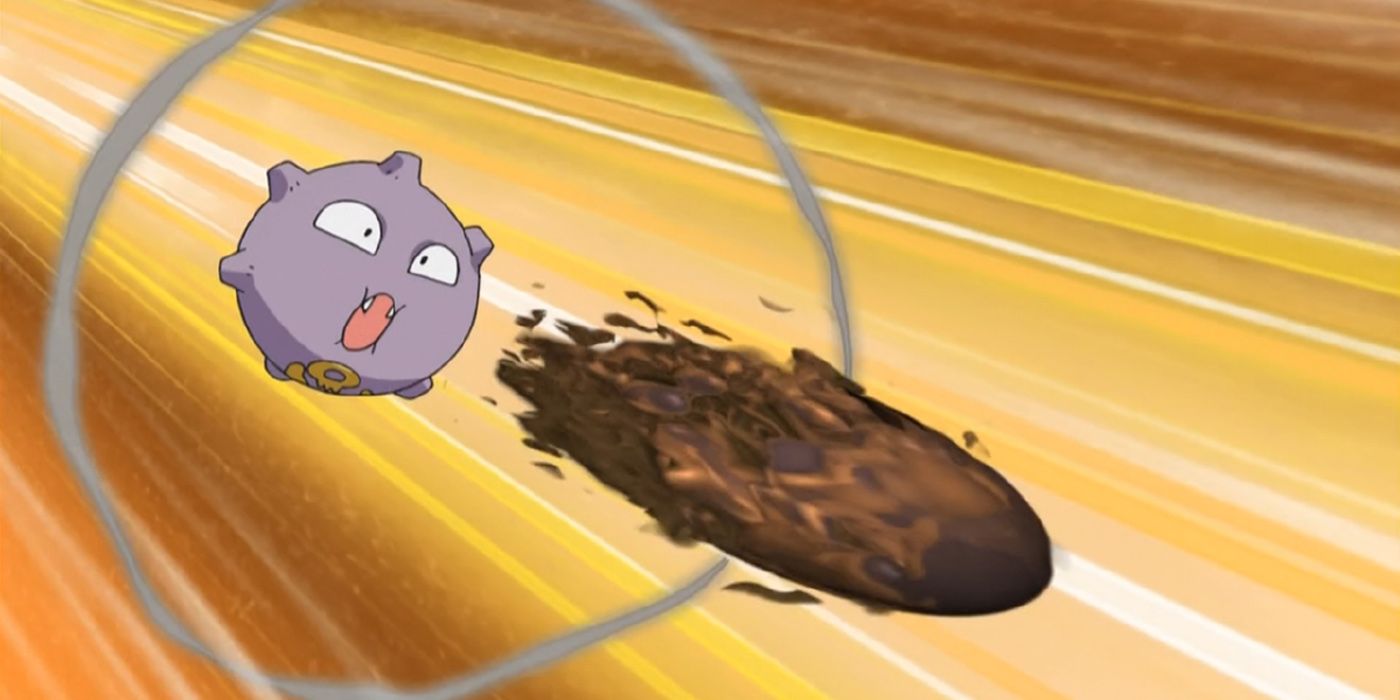
Sludge Bomb is nearly identical to Sludge Wave, but has one change that makes it much better. This move’s power rating is 90, its accuracy is 100, and it has a PP count of 10. This makes it arguably less effective in a single battle, as Sludge Wave is outright just a better choice for many Pokemon.
Sludge Bomb’s chance to poison is 30%, compared to Sludge Wave’s 10%. This increase to a 1/3 chance of poisoning the opponent makes it much more probable than Sludge Wave’s chance, and is well worth the loss of 5 to its power rating (versus Sludge Wave). Tankier Pokemon looking to apply poison in an offensive manner, This move is worth using an item or two to increase its PP count.
1 Gunk Shot

Gunk Shot is the strongest poison attack move, with a power rating of 120. It has an accuracy of 80, but only starts with a PP count of 5. Fortunately, the 80 accuracy is much more reliable than other high-powered attacks in the same tier
The only two moves that come close to Gunk Shot in terms of power are Belch and Venoshock. Belch requires the Pokémon to have already eaten a berry in battle, and Venoshock’s power is only comparable if the opponent is poisoned. Gunk Shot has no limitations or prerequisites to work. The PP count can thankfully be increased to 8; which players will want to do. For physical attacking poison-types, Gunk Shot is the best offensive choice hands down.
NEXT: Pokemon Sword & Shield: The 10 Strongest Poison Pokemon, Ranked

